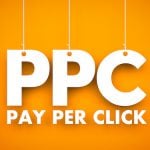
Advanced PPC Strategies
In the ever-changing world of digital marketing, pay-per-click (PPC) advertising is one of the best strategies businesses have to boost their online presence and drive traffic and revenue to their site. Unfortunately, no matter the industry you’re in, your business will be up against corporate giants such as Amazon or Walmart. Basic PPC strategies can yield great results, but using more advanced tactics can potentially help your business stand out amongst these companies and other small shops.
These techniques are pivotal for businesses aiming to outdo their competitors and achieve their marketing objectives with greater precision and efficiency. From the nuances of using remarketing strategies to smart bidding practices, there are a variety of actions you can take to level up your PPC campaigns.
Understanding Remarketing Strategies And How To Use Them
One of the most advanced PPC strategies is remarketing. In some industries, potential clients or customers may not convert into paying consumers on their first website visit. Remarketing is a useful tool for reconnecting with those users as they browse other websites or use their apps, keeping your brand at the top of their mind and encouraging the user to return and complete their purchase or action.
There are several approaches you can take toward remarketing, each with its unique benefits. Standard remarketing focuses on displaying ads to past visitors as they navigate sites around the Internet. Dynamic remarketing takes this a step further by showing specific products or services the user viewed on your site. Finally, remarketing lists for search ads (RLSAs) allow you to customize ad campaigns based on whether users have previously visited your site and what they viewed.
When optimizing these campaigns, you should focus on maximizing the impact. Audience segmentation helps you divide your audience based on behavior, such as frequent visitors, to create highly targeted ads. Tailoring your ad copy and visuals to resonate with specific audience needs and preferences can also help with increasing the impact of your paid ad campaigns. As you monitor your ad campaigns’ performance, adjust your bidding strategy, too, increasing or decreasing ad spend based on the likelihood of conversion from different audience segments.
Mastering Dynamic Search Ads
Dynamic Search Ads (DSAs) are great for advertising efficiently and ensuring their PPC campaign is shown to a relevant audience. By automatically generating ads based on a website’s content, DSAs ensure that your ads are always up-to-date and relevant to what users are searching for. This method even allows you to reach a wider audience by automatically matching user queries with relevant offerings from your website.
DSAs can also fill the gaps in your keyword-based campaigns and connect with users searching for exactly what your business offers, even if you haven’t explicitly targeted those terms. All three benefits work together to improve the efficacy of the other, so you can get the most out of your paid campaigns.
However it is important to remember that Google does not necessarily understand your business. You may have multiple services on your website, but usually a business is driven by only a few of these services. Be sure to keep a close watch on your DSAs to make sure that your advertising and business goals are aligned.
Leveraging A/B Testing For PPC Optimization

A/B testing is a systematic approach to comparing different versions of your PPC campaign to determine which performs the best. This method is especially helpful when making data-driven decisions to improve your campaign’s effectiveness.
Some of the areas you might want to test are ad copy, landing pages, and targeting options. With ad copy, you can try different headlines, descriptions, or calls-to-action in order to determine which is the most effective at converting users. Experimenting with design and ad copy can also help test out your landing pages, so you can better understand user journeys.
Finally, comparing different audience segments, times of the day, and geographic areas can help narrow down the user base most likely to interact with your ads.
Harnessing Audience Targeting For Precision
PPC platforms provide a range of audience targeting options to help fine-tune your campaigns. These include demographics, interests, and customer matches. When designing your ads, make use of the data to build custom audiences based on specific criteria, such as past purchases or website behavior. This helps ensure your ad is seen by the right people and can help with maintaining your campaign’s budget.
Leveraging look-alike audiences means searching for new users who share similar characteristics with existing clients. This can increase your reach, but it also helps to adjust bids and further segment audiences to ensure accurate targeting.
Embrace Smart Bidding Strategies

When first creating a campaign, many opt for manual bidding when it comes to ad placement. This is a more hands-on approach to customizing your campaign and can lower your cost per action. However, if you are looking for a more advanced strategy, smart bidding is the way to go.
Smart bidding refers to the use of machine learning to optimize bids before each auction, with a focus on maximizing conversions or conversion value. Within this strategy are three types: target return on ad spend (ROAS), target cost per acquisition (CPA), and enhanced cost per click (ECPC). Each one comes with its own benefits and drawbacks.
All three require focus since the process of implementing smart bidding features can be time-consuming. These strategies also include actions such as lowering bids for keywords that generate solid impressions but rarely convert users into sales or leads. You might even have to increase bids for high-performing keywords that create conversions and improve the position of your ads.
Manual bidding is great for when you want more control over bids, but this strategy means more time goes into ensuring you bid the right amount at the right time to improve your PPC campaign. With automatic strategies, you can set the machine-learning tool to find the best bids and enact them while you are busy handling other parts of your business. You can set up your desired cost per acquisition or return on ad spend goals and let Google’s algorithms adjust your bids to meet these targets.
Don’t Overspend On Paid ADS
To minimize the potential for overspending, set clear goals. Determine what you want to achieve with your PPC campaigns and choose the right strategy that aligns with that goal. You should also monitor the performance, adjusting as needed to maximize the effect of your ads while limiting spending. Machine learning is useful, but it is not flawless and should not replace human experience. Make use of your experience and the AI by integrating them into your strategy.
Create Your Next PPC Campaign
PPC optimization is an ongoing process. The best PPC campaigns are clear, consistent, targeted, and provide the user with the best experience. They also require regular reviews and refinement that ensure your strategies remain effective and aligned with your business goals. The latest AI tools implemented by Google are much improved, but it is still necessary to review campaign performance on a regular basis. As you continue building your campaigns, including some of these advanced techniques can be a great way of advertising your business and trying out new audiences.
Every year, new options and updates are released, making it nearly impossible to thrive without constantly analyzing so you can enhance your strategies. Most business owners lack the time and resources to constantly do this. Instead of trying to go it alone, trust the PPC experts at Just A Web Company to manage your PPC campaigns. We monitor and analyze ad performance, so your business can benefit as much as possible. Contact us today to learn how we can help you!
Hire A PPC Expert Today!
Pay Per Click or Paid advertising takes time to learn. No one is born an expert. Managing campaigns can be a full time job in and of itself.
There is no shortage of online materials to help you navigate to the ins and outs of paid advertising, but it takes time, patience and budget.
Are you looking to get a campaign up and running in the next few days or do you have time? If you need something running sooner than later you are best served hiring a PPC specialist to get you going.
Whether you are creating your first paid ad campaign or launching your 100th, our team can help make sure your ads are delivered to the right audience, with the right messaging and keep you within your budget.
Call our office or fill out the form to get started!
Frequently Asked Questions
What is PPC advertising?
PPC stands for “pay-per-click” advertising. This is a model of digital advertising where the business pays a fee each time one of their ads is clicked. In short, you are paying for targeted visits to your website, landing page, or app. The trade-off is that you can place your ads around the internet and convert more users into paying customers. This often offsets the amount paid for the click.
With PPC, you can promote your business or product on social media platforms, search results, and websites. Digital ads can also feature text, images, and video. Another difference between PPC and traditional marketing is that, instead of paying for your ad upfront, you pay when someone clicks on your ad.
Why is PPC important?
Paid digital advertising is a great resource for businesses, offering opportunities to place ads in front of potential consumers based on their search queries. This also allows for highly targeted advertising, so you can ensure you are only going after users who already have an interest in similar products or services.
Data obtained from PPC can also provide valuable insights that will help drive other business and marketing decisions. For example, you can use PPC campaigns to test how users engage with your ads, website, and products. It can also help you better understand what demographic you attract with your current ads.
How does PPC work?
PPC is essentially a bidding platform that rewards companies who dedicate more time and money on their campaigns with better ad placement and performance. While the amount paid does not directly correlate to more conversions, it may help. The most important thing to focus on is creating well-designed and optimized advertisements to convert users into paying customers.
What is the difference between ad impressions and ad clicks?
When an ad is viewed by a user on a search engine, it is called an impression. These are free, but in order to get them, your ad must be highly relevant and outperform other competitors’ digital advertisements.
To go from an impression to a click, you need an ad that separates you from the rest. An interested user will then click on your ad, which will take them to your website or landing page. The best part of pay-per-click is that you only pay when someone interacts, or clicks, on your ads, making it cost effective.
How is my cost for advertising determined?
Prices for a PPC campaign vary by business, industry, and strategy. Every campaign’s cost will be determined by the bid, targeting, and ad quality. In PPC, your bid is how much you are willing to pay for someone to click on your ad based on the target keywords you’ve selected. Targeting can also influence the cost. For example, if a certain keyword is highly competitive, you likely need to pay more to compete with other businesses targeting the same word or phrase. Finally, quality scores also matter in PPC advertising. High-quality ads often attract and convert more users, keeping the costs low.



